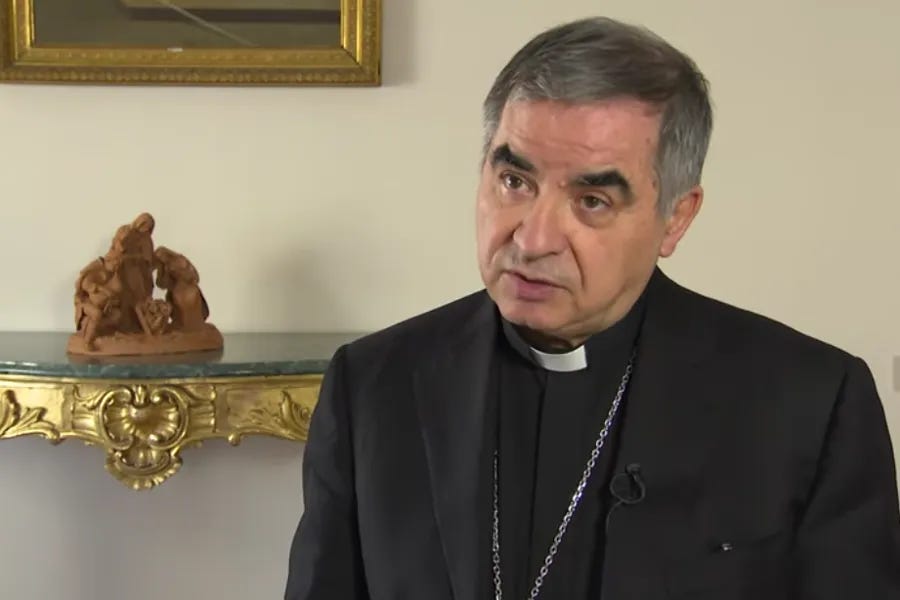The cardinals’ ‘Becciu Test’
Cardinal Becciu's claim to enter the conclave serves up a test of law and leadership for the cardinals
Cardinal Angelo Becciu’s decision to assert the right to participate in the upcoming conclave has struck many observers as the latest in a litany of logically and factually questionable statements from the former sostituto and prefect of the Dicastery for the Causes of Saints.
Cardinal Giovanni Angelo Becciu. Screenshot from Vatican News - Italiano YouTu…

